Winter Energy Loss: Identifying the Culprits
Let's Discuss Winter Energy Loss
Most homeowners know the feeling of receiving their power bill after a cold winter month and finding it far higher than previous months’ bills. It’s easy to see your home’s high energy usage and blame it on your heater. But is that really the entire problem?
If you experience an extra high power bill, a large part of this is likely due to energy waste in your home. Inefficient areas of your home cause your appliances to work harder to produce the results you need. This increases your home’s overall energy usage, leading to higher power bills. So where is this energy waste happening, and what do you need to do to get rid of it?
Attics
About 25% of a home’s energy waste occurs through the attic. If your attic is not properly insulated, it can severely increase your home’s energy consumption. In winter, old or poorly installed insulation in your attic can allow cold attic air to seep into your home, which means your heater has to work even harder to keep your house warm.
We help you avoid this issue by installing energy efficiency upgrades in your attic. By adding high quality insulation, we can reduce the heat transference between your attic and your home. Improved insulation will keep the cold in your attic from entering your home, and keep the warmth from your heater from escaping into your attic. Adding in a solar attic fan can further improve your attic’s efficiency by preventing the negative effects of stagnant air.
Windows and Doors
Windows and doors can also cause energy waste and discomfort, especially during the winter months. If not sealed properly, they can allow cold drafts to enter your home, affecting its temperature and leading to an increase in your heater usage. Sealing your doors and windows properly can decrease the drafts they let in, which will help stabilize your home’s temperature.
Ductwork
One more area to target when addressing energy waste is your ductwork. Around 75% of homes in the US have leaky ductwork. According to Energy Star, leaky ductwork can reduce your home’s heating and cooling system efficiency by up 20 percent. These leaks can also lead to more temperature issues in your home, leaving you cold in the winter and hot in the summer. Sealing your ducts properly can reduce these issues.
Appliances
You can also benefit from upgrading old, inefficient appliances. According to the Appliance Standards Awareness Project, new appliances are held to higher efficiency standards. That means that by upgrading to newer appliances, you are improving your home’s overall efficiency and decreasing your energy waste because your new appliances have to work less hard to provide you with the results that you need.
These are some of the main areas where homes lose energy. By targeting these areas and improving their efficiency, you can reduce your home’s overall energy waste.
Energy Efficient Habits
When working to reduce energy waste, it is also important to make sure that you are practicing energy efficient habits daily. Take shorter showers and do not let sinks run unnecessarily to reduce the amount of work your water heater is doing each day. Check lights and appliances before you leave your home to make sure nothing is left running and using up energy. Use electronics in low power mode so that you spend less electricity charging them each day. Even these little changes can make a difference in your home’s energy consumption.
Ultimately, the greatest importance lies in ensuring that major energy loss culprits are identified and addressed. Upgrading your attic’s insulation, adding attic fans, and sealing ductwork, doors, and windows can all help reduce energy waste in your home. Completing these home upgrades will improve the comfortability of your home and reduce your power bill by decreasing winter energy waste.
Do you want to learn more about the energy efficiency upgrades available for your home? Reach out to Earth Right Mid-Atlantic so we can help reduce your home’s energy waste, and subscribe to our blogs for more useful energy information.








